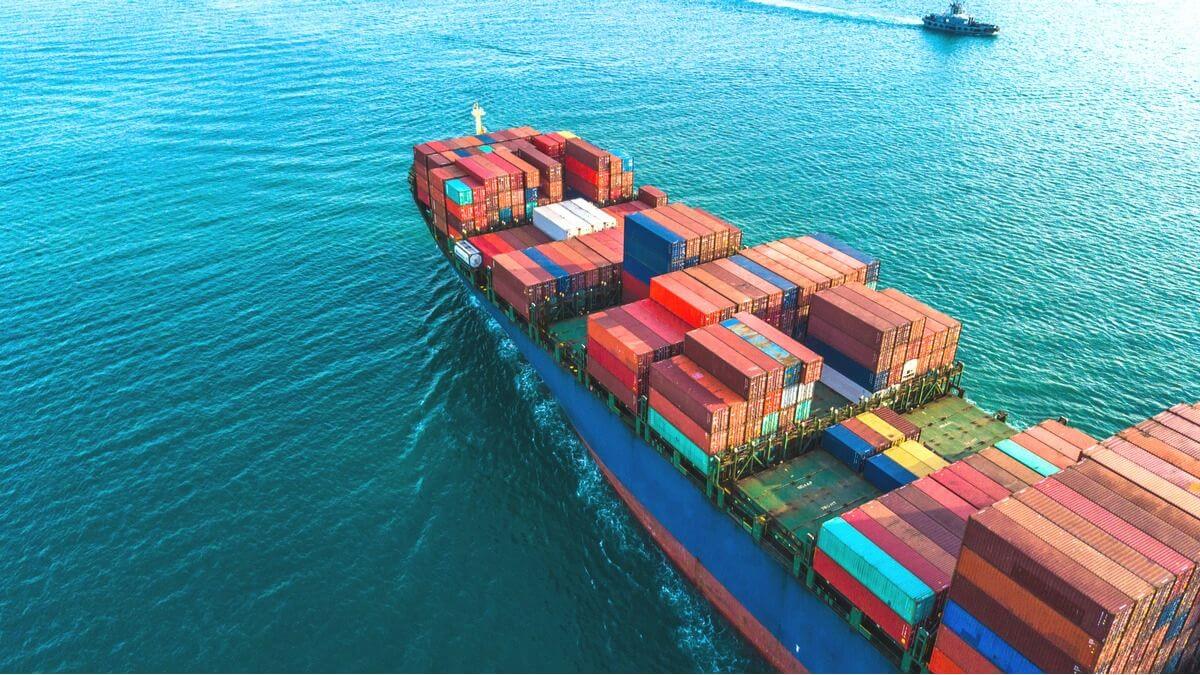Canada Tax Codes Explained - Guide for UK Employers
Check out our guide on Canada tax codes. Get to grips with tax codes by province, federal income tax rates in Canada to help with international employees.

A commercial invoice is one of the documents required if you’re shipping goods overseas. These documents are used as part of the customs process, to check goods as they arrive in their destination country.
From the UK, exporters are usually obliged to include a commercial invoice along with other shipping documents, when exporting to countries outside the EU. For export to most EU countries, a commercial invoice isn’t mandatory - but there are some EU locations where you’ll need one.¹ These include Gibraltar, the Channel Islands, the Canary Islands and some regions of mainland Europe. Double check the regulations for your specific destination before you get started.²
This means that the amount of detail needed for a commercial invoice form is a little different to other types of product invoicing. If you need to send invoices overseas, the easiest way is to create online invoices which can be passed on immediately and electronically. You don’t need to pay for postage, or wait for delivery, before you can get your bill into the hands of your client. Another smart way to save money and grow your business, is to send and receive international payments using Wise. More on that in a minute.
This article will cover:
When you have to pay employees or suppliers overseas it might seem logical to do this with your bank. You already have an account there, they have all your information, so it just seems easier. Although these are valid reasons, easier certainly doesn’t mean cheaper.
Most banks won’t convert your money with the mid-market exchange rate when you make an international payment. Instead they add a mark-up and charge you a hidden fee that way. Wise is different. Its smart technology skips hefty international transfer fees by connecting local bank accounts all around the world. Which means you can save by using Wise when you send your money abroad.
Wise also has a lot of additional features for business users. You can connect with Xero to make your life easier, upload a batch of payments in one go or even automate your payments by integrating with our API. And there’s more to come in the future.
Both proforma and commercial invoices are important documents in the export and import business - but it can be a little confusing knowing which-one-is-which. To make things even more confusing, the two types of invoices are almost the same thing - with the vital difference that the final quantity of goods on the commercial invoice can be different than the proforma.
A proforma invoice is produced by the seller of goods or services. Once an international order is confirmed, a proforma invoice is created and sent to the client to confirm the details of the order. It also usually includes the seller’s payment details so that the client can pay the invoice.
The proforma invoice is produced before the goods or services have been produced or delivered. Whereas a commercial invoice is issued after the goods have been delivered or shipped.³
The exact details on your commercial invoice might vary depending on the country you’re sending goods to. However, it’s common to include the following:
It’s worth noting that international commercial invoices might not include any customs tax information. That’s because the tax the buyer will pay may depend on what they do with the goods after purchase, and the final tax bill will be calculated when the shipment passes through customs. Check the details for your specific situation with a tax professional if you’re unsure.⁴
Using accounting software to create invoices is a great way to save time and simplify the process of invoicing. Some providers do not offer a specific template for commercial invoices, but rather you can import your own commercial (customised) invoice template onto a platform as a new style.
Some accounting software providers that can help with commercial invoices, and integrating the process with your accounting needs, are:
International trade is potentially a profitable business model, as it opens up the market and the opportunities to expand your business. Although, an important part of this venture must be the paperwork - you need to make sure to do your research to check that it’s all in order, and is compliant in the countries in which you operate. Consider getting paid by international clients using Wise, as another smart way to save money and allow you to take your business even further.
Sources used:
1.https://www.gov.uk/guidance/international-trade-paperwork-the-basics UK Government: Basics of International Trade PaperWork
2.https://www.tnt.com/express/en_gb/site/support/faq.html TNT: International Trade FAQ
3.https://incodocs.com/blog/difference-proforma-invoice-commercial-invoice/ Proforma vs Commercial Invoice
4.https://incodocs.com/blog/commercial-invoice-document-export-shipping/ Guide to creating a Commercial Invoice
Sources checked on 27 June 2019.
*Please see terms of use and product availability for your region or visit Wise fees and pricing for the most up to date pricing and fee information.
This publication is provided for general information purposes and does not constitute legal, tax or other professional advice from Wise Payments Limited or its subsidiaries and its affiliates, and it is not intended as a substitute for obtaining advice from a financial advisor or any other professional.
We make no representations, warranties or guarantees, whether expressed or implied, that the content in the publication is accurate, complete or up to date.

Check out our guide on Canada tax codes. Get to grips with tax codes by province, federal income tax rates in Canada to help with international employees.

Looking to scale your business in Scotland? Check out this guide to business grants in Scotland from start up funding to government business grants and more.

Seeking funding for your business? This guide signposts what grants are available for small businesses in the UK and tips to help ensure application success.

Looking to scale with a business grant? This guide outlines opportunities for business grants in Wales - from start up funding to Welsh government grants.

If you’re a UK employer with employees in Germany, check out our guide on German tax codes. Learn about tax laws in Germany, income tax brackets and more.

Considering starting a business in Croatia? Read this guide on Croatia company registration. Learn how Wise could help you save when doing business in Croatia.